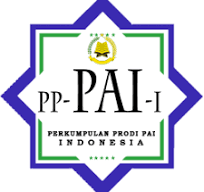URGENSI PENANAMAN NILAI-NILAI PENDIDIKAN ISLAM BAGI REMAJA LEWAT KISAH-KISAH ISLAMI
DOI:
https://doi.org/10.54069/attaqwa.v19i2.649Keywords:
Pendidikan Islam, kisah Islami, Nilai-nilai PAIAbstract
Islamic education in the past, had an important role in shaping the character and morality of adolescents. In addition to the awareness from parents of the importance of instilling Islamic education for a child from an early age, adolescents also have an interest and awareness of the importance of studying, including religious knowledge. Nevertheless, the reality of our youth is far from the values of Islamic education. Even our teenagers today tend to fall into negativity and away from religious teachings. In this study, there were two formulations of the problem raised. Namely the strategy of instilling Islamic educational values for adolescents and the urgency of instilling Islamic educational values for adolescents through Islamic stories. The method used in this study is qualitative research methodology with a Library Research approach, which is reviewing books and journals that have been published in accordance with the theme. The results of the study, namely the cultivation of Islamic educational values for adolescents, can be done by prioritizing 3 aspects, namely monotheism / religion, moral aspects, and social aspects. Meanwhile, the urgency of its application can be done by prioritizing the cultivation of Islamic education values for adolescents through Islamic stories whose application can be more effective in providing a more comprehensive religious understanding.
Downloads
References
Abidin and A. Rahmat. 2020. Creative Storytelling in Islamic Education: A Study on the Effectiveness of Creative Storytelling in Enhancing Students' Interest, International Journal of Instruction, Vol. 13(3)
Adi Subhan, dan Muksin. 2020. Studi Islam Era Society 5.0, Solok: Insan Cendekia Mandiri
Ahmad et al., 2022. Pengaruh Cerita Islami Terhadap Perkembangan Akhlak Siswa Sekolah Menengah, Jurnal Pendidikan Akhlak, Vol. 51(1)
Alias dkk.. 2021. Aplikasi Bercerita Islami untuk Anak: Meningkatkan Keterlibatan Pengguna melalui Gamifikasi, Jurnal Teknologi Pendidikan & Masyarakat, Vol. 24(2)
Ali, Ramsah. dan Indra. 2021. Media Pembelajaran Pendidikan Islam, TA”DIB: Jurnal Pemikiran Pendidikan, Vol. 11 No. 2.
Arnett. 2017. The Psychology of Globalization, American Psychologist, Vol. 72(6), 2017
Chanifudin. 2016. Pendekatan Interdisipliner : Tata Kelola Pendidikan Islam Di Tengah Kompleksitas, Edukasi Islami Jurnal Pendidikan Islam, Vol. 05, Januari
Depdiknas, Undang-undang RI Nomor 20 Tahun 2003, Tentang Sistem Pendidikan Nasional
Drajat, Zakiah. 2014. Ilmu Pendidikan Islam, Jakarta: PT. Bumi Aksara
____________1995. Remaja Harapan dan Tantangan. Jakarta: Ruhama.
___________, 1993. Ketenangan dan Kebahagiaan dalam Keluarga. Jakarta: Bulan Bintang
Greenfield. 2009. Technology and Informal Education: What Is Taught, What Is Learned, Science, 323(5910)
Harahap, Nikmah Royani. 2022. Penerapan Nilai-nilai Tasawuf Upaya Meningkatkan Akhlak Dalam Mengatasi Kenakalan Remaja Masa Kini, Jurnal Pendidikan dan Konseling, Vol. 4 No. 6.
Harahap, Akhir Perdamean. dkk. 2023. Implementasi Bimbingan Konseling Islami terhadap Kenakalan Remaja di Era Digital, Jurnal Pendidikan Konseling, Vol. 5 No.1
Hidayati. 2021. Nilai Pendidikan Islam di dalam Keluarga: Studi Deskriptif terhadap Nilai Pendidikan Sosial pada Keluarga Muslim, Jurnal Psikologi Kesehatan, Vol. 7(1).
Hourani, George Fadlo. 2011. Ibn Miskawayh, dalam The Islamic Scholarly Tradition: Studies in History, Law, and Thought in Honor of Professor Michael Allan Cook, Leiden: Brill
Kamus Besar Bahasa Indonesia. 1998. Tim Penyusun Pusat Pembinaan dan Pengembangan bahasa
Lubis, Isnaini. 2023. Peran Agama dalam Kesehatan Mental Pada Remaja Masjid, Jurnal Pendidikan dan Konseling, Vol. 5 No. 1
Miskawaih, Ibnu. 1996. Tahdhib al-Akhlaq (Pembersihan Akhlak), terjemahan oleh T. J. L. Combe, London: George Allen & Unwin Ltd.
Majid, Abdul. 2011. Pendidikan Agama Islam di Sekolah, Bandung: PT. Remaja Rosdakarya.
Muhaimin. 2004. Paradigma Pendidikan Islam, Bandung: PT Remaja Rosda Karya.
Nata, Abuddin. 2013. Sejarah Pendidikan Islam, Jakarta: Pt Raja Grafindo Persada
Qardawi, Yusuf. 2003. The Methodology of Teaching Islamic Education, Kairo: International Islamic Publishing House
Supriyono, Widodo. 2001. Ilmu Pendidikan Islam: Teoritis dan Praktis, dalam Ismail SM, et.al, Paradigma Pendidikan Islam, Yogyakarta: Pustaka Pelajar.
Shihab, M. Quraish. Tafsir Al-Mishbah, Pesan, Kesan, dan Keserasian Al-Qur’an, Jakarta: Lentera Hati, Volume 6, cet. V.
Saleh et al. 2020. Islamic Stories as Psychotherapy: A Case Study, Journal of Religion and Health, Vol. 59(1).
Sudrajat, Ajat, dkk. 2008. Din Al-Islam, Yogyakarta: UNY Press
Thoha, Chabib. 1996. Pendidikan Islam, Yogyakarta: Pustaka Pelajar
Tambak, Syahraini. 2016. Metode Bercerita dalam Pembelajaran PAI, Jurnal A-Thariqah, Vo. 1 No. 1.
Yaqin, M. Ainul. 2005. Pendidikan Multikultural, Cross cultural understanding untuk demokrasi dan keadilan, Yogyakarta: Pilar Media.
Downloads
Published
How to Cite
Issue
Section
License
Copyright (c) 2024 Muksin Muksin, Ali Mudlofir

This work is licensed under a Creative Commons Attribution-NonCommercial 4.0 International License.





